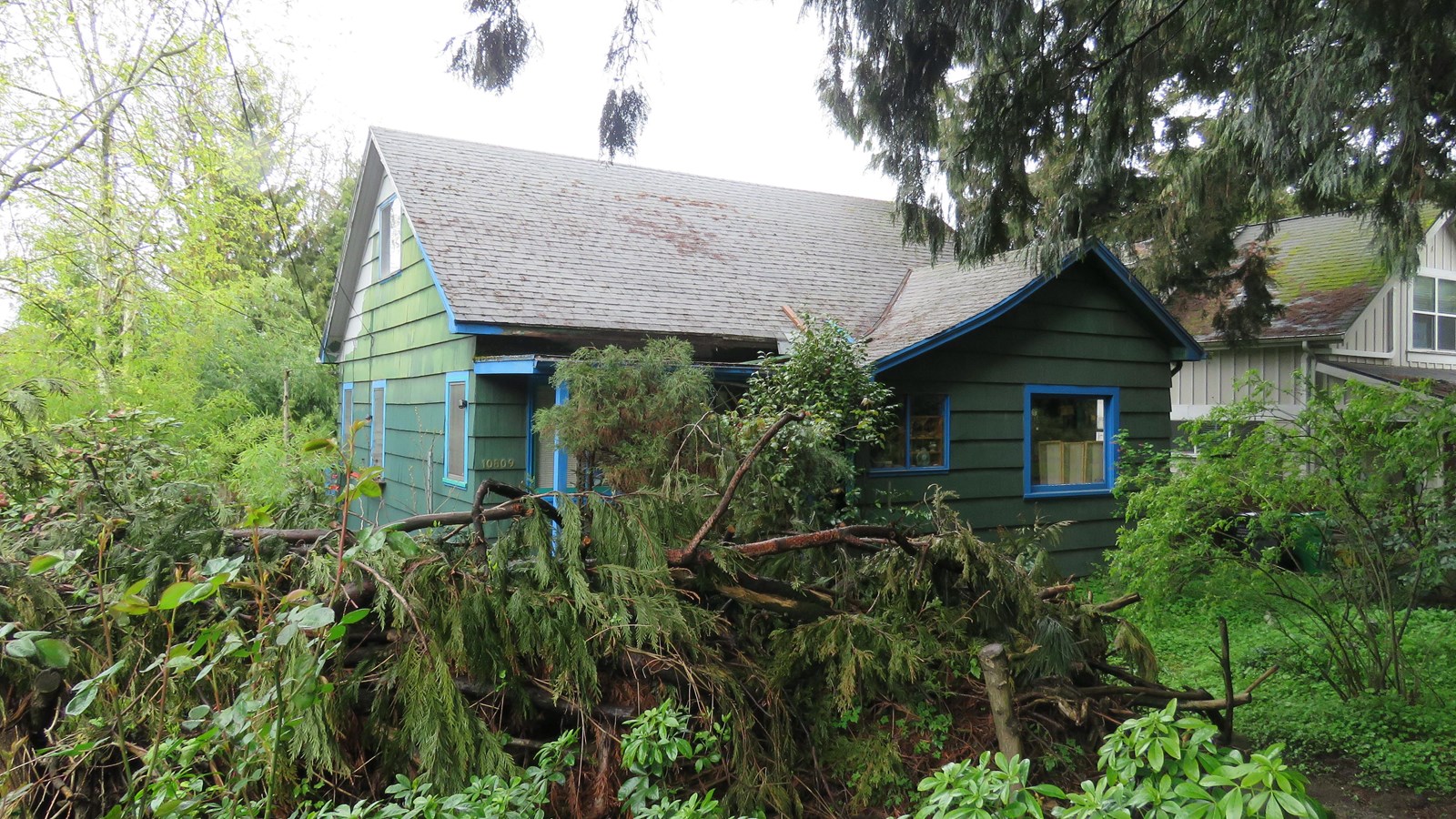Last updated: December 23, 2023
Place
Jim Pepper House

Photograph by Caitlin Ewers, courtesy of the Oregon State Historic Preservation Office
Quick Facts
Location:
Parkrose, Portland, Oregon
Significance:
Ethnic Heritage - Native American, Performing Arts
Designation:
Listed in the National Register - Reference number 100009051
OPEN TO PUBLIC:
No
MANAGED BY:
Private
The Jim Pepper House in Parkrose, Portland, Oregon was listed in the National Register of Historic Places in 2023. The property is significant as the childhood home of Kaw and Muscogee Creek jazz saxophonist Jim Pepper, who melded Native American musical traditions with jazz and rock.
Jim Pepper was born in Oregon in 1941. During and immediately after World War II, Pepper, his parents, and his younger sister lived in a segregated wartime housing project named Vanport (a portmanteau of Portland and Vancouver). The Peppers moved into the Parkrose residence in 1949.
From a young age, Pepper's parents emphasized the importance of familial traditions and cultural lifeways. His father, Gilbert, was an accomplished fancy dancer and singer, and his mother, Floy, was an educator who had previously focused on teaching Indigenous cultural heritage. Pepper later reflected, "I knew where I was from from the time I was born. My mother and father instilled that in me."
Pepper was a versatile performer in his youth, practicing traditional Kaw dancing, tap dance, and vaudeville routines, as well as acting in school productions. He was a self-taught musician and took up a number of instruments before beginning to play the tenor saxophone, which became his signature instrument.
After graduating high school and a few semesters at Brigham Young University, Pepper began his professional career as a jazz musician, spending time in San Francisco and New York City. In New York, Pepper formed the group The Free Spirits, who produced what is considered the first jazz-rock record in 1967. In 1968, Pepper released "Witchi Tai To," which combined a Comanche song with jazz; it achieved moderate success on the Billboard pop charts, and raised his profile. Three years later Pepper released his debut album, "Pepper's Pow Wow," which continued his fusion of Indigenous and jazz musical traditions.
Over the next two decades, Pepper's work continued to break boundaries in the genre, as he toured in New York, Alaska, Europe, and West Africa. Pepper would frequently return to his childhood home for weeks or months at a time, where he often composed songs with his father. Pepper died in the home from lymphoma in 1992. Portland continues to celebrate his accomplishments through the yearly Jim Pepper Native Arts Festival, which creates opportunities for Indigenous musicians and raises awareness for Indigenous contributions to the arts.
Jim Pepper was born in Oregon in 1941. During and immediately after World War II, Pepper, his parents, and his younger sister lived in a segregated wartime housing project named Vanport (a portmanteau of Portland and Vancouver). The Peppers moved into the Parkrose residence in 1949.
From a young age, Pepper's parents emphasized the importance of familial traditions and cultural lifeways. His father, Gilbert, was an accomplished fancy dancer and singer, and his mother, Floy, was an educator who had previously focused on teaching Indigenous cultural heritage. Pepper later reflected, "I knew where I was from from the time I was born. My mother and father instilled that in me."
Pepper was a versatile performer in his youth, practicing traditional Kaw dancing, tap dance, and vaudeville routines, as well as acting in school productions. He was a self-taught musician and took up a number of instruments before beginning to play the tenor saxophone, which became his signature instrument.
After graduating high school and a few semesters at Brigham Young University, Pepper began his professional career as a jazz musician, spending time in San Francisco and New York City. In New York, Pepper formed the group The Free Spirits, who produced what is considered the first jazz-rock record in 1967. In 1968, Pepper released "Witchi Tai To," which combined a Comanche song with jazz; it achieved moderate success on the Billboard pop charts, and raised his profile. Three years later Pepper released his debut album, "Pepper's Pow Wow," which continued his fusion of Indigenous and jazz musical traditions.
Over the next two decades, Pepper's work continued to break boundaries in the genre, as he toured in New York, Alaska, Europe, and West Africa. Pepper would frequently return to his childhood home for weeks or months at a time, where he often composed songs with his father. Pepper died in the home from lymphoma in 1992. Portland continues to celebrate his accomplishments through the yearly Jim Pepper Native Arts Festival, which creates opportunities for Indigenous musicians and raises awareness for Indigenous contributions to the arts.
